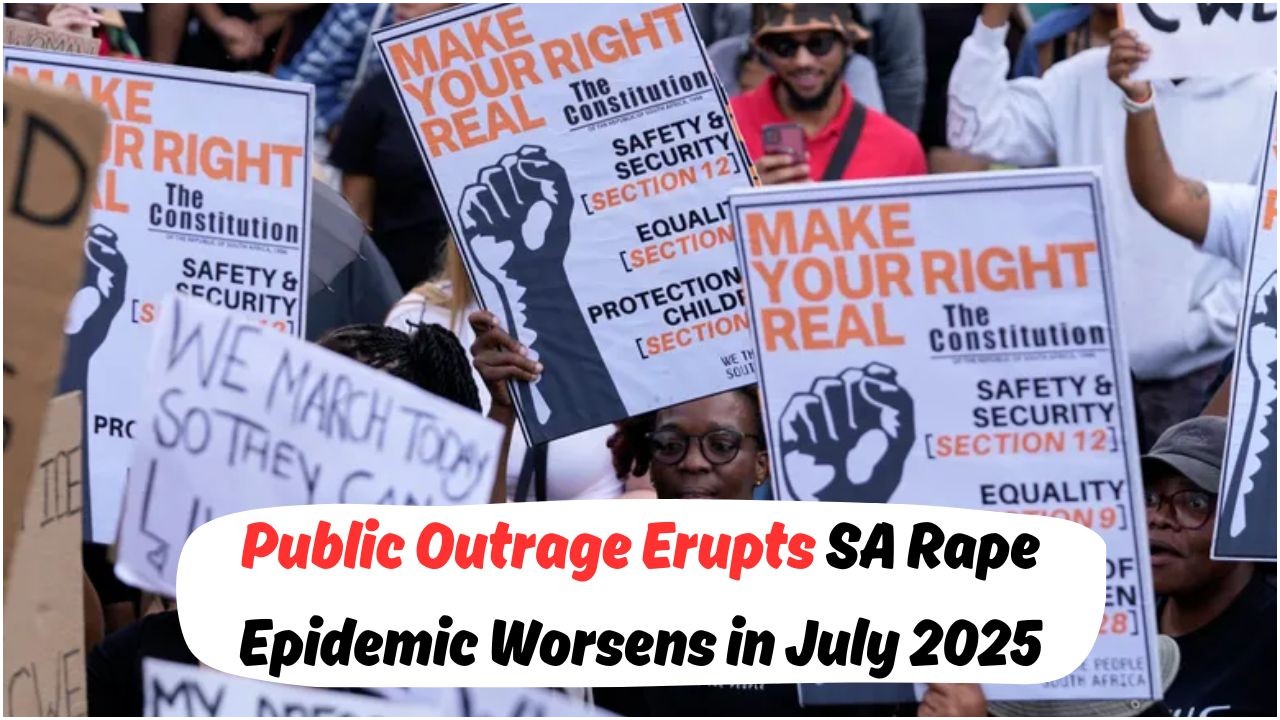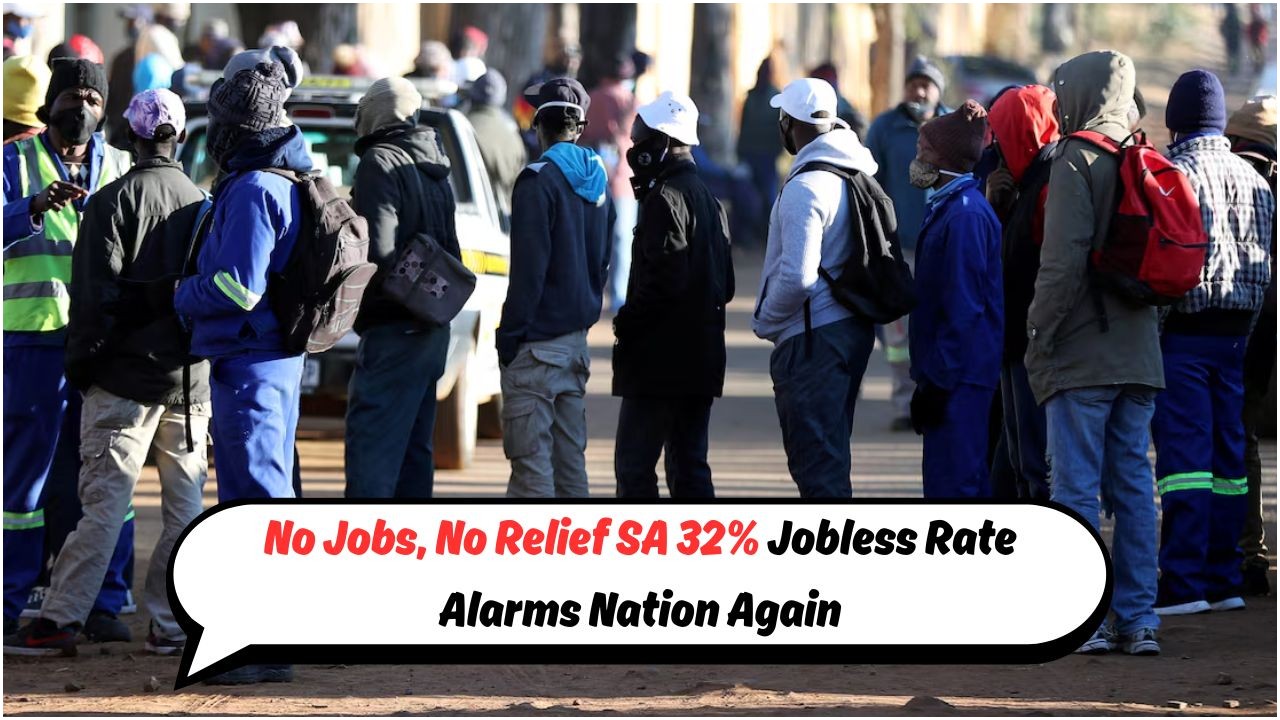July’s Chilling Reality: 45 Daily Rapes Plunge South African Women into Fear: The stark reality facing South Africa in July is a chilling reminder of the challenges women endure daily. A staggering 45 rapes are reported each day, painting a grim picture of the safety concerns that pervade the country. This alarming statistic not only highlights the prevalence of gender-based violence but also underscores the urgent need for effective measures to protect women and bring perpetrators to justice. The persistent threat of sexual violence creates an environment of fear and insecurity, impacting the everyday lives of countless women across the nation.
The Impact of 45 Daily Rapes on South African Society
The revelation that 45 rapes occur daily in South Africa has profound implications for society at large. This pervasive violence does not exist in isolation; it affects the social fabric, economy, and overall well-being of the nation. The psychological trauma inflicted on survivors often requires long-term support, straining mental health resources. Additionally, the fear of violence can limit women’s mobility and participation in public life, hindering economic growth and development. Addressing this crisis demands a multifaceted approach, including legislative reforms, community engagement, and enhanced support services for survivors.
 ArcelorMittal Crisis: Thousands of Jobs at Risk as SA Steel Plant Faces Closure by Sept 30
ArcelorMittal Crisis: Thousands of Jobs at Risk as SA Steel Plant Faces Closure by Sept 30
- Psychological trauma affecting survivors and their families
- Increased demand for mental health and social support services
- Impact on women’s participation in the workforce
- Strain on law enforcement and judicial systems
- Challenges in community cohesion and safety
- Amplification of gender inequality
- Economic repercussions from reduced productivity
Addressing Gender-Based Violence in South Africa
Efforts to combat gender-based violence in South Africa require a coordinated and sustained approach. Various stakeholders, including government agencies, non-governmental organizations, and community leaders, must collaborate to create a safer environment for all. Key areas of focus include improving the legal framework to ensure swift and fair justice for survivors and offenders, increasing public awareness campaigns to challenge societal norms that perpetuate violence, and expanding access to support services that empower survivors and aid in their recovery.
| Stakeholder | Role | Action | Impact | Challenges |
|---|---|---|---|---|
| Government | Policy Maker | Legislation | Stronger Laws | Implementation |
| NGOs | Advocacy | Support Services | Survivor Assistance | Funding |
| Community | Awareness | Education | Behavior Change | Resistance |
| Law Enforcement | Enforcement | Investigation | Increased Convictions | Resource Allocation |
Community Initiatives: A Beacon of Hope
Grassroots movements and community initiatives play a critical role in addressing the epidemic of violence against women. In South Africa, numerous local organizations work tirelessly to support survivors and prevent further incidents. These initiatives often focus on education, providing workshops and training to both men and women to foster understanding and empathy. By creating safe spaces where women can share their experiences and access resources without fear of judgment, these community-led efforts contribute significantly to the broader fight against gender-based violence.
- Empowerment workshops for women
- Educational programs for men and boys
- Support groups for survivors
- Awareness campaigns in schools
- Collaboration with local authorities
- Resource centers for legal and psychological aid
- Partnerships with international organizations
- Training for community leaders
- Advocacy for policy changes
Table: Community Initiatives in South Africa
| Initiative | Focus Area | Target Group | Outcome |
|---|---|---|---|
| Women’s Empowerment | Education | Women | Increased Confidence |
| Men’s Workshops | Behavior Change | Men | Reduced Violence |
| Survivor Support | Counseling | Survivors | Improved Well-being |
| School Programs | Awareness | Youth | Early Intervention |
| Legal Aid | Assistance | All | Better Access to Justice |
| Community Advocacy | Policy Influence | Policymakers | Legislative Changes |
| Resource Centers | Information | Public | Increased Awareness |
| Leader Training | Capacity Building | Community Leaders | Enhanced Leadership |
| International Partnerships | Collaboration | NGOs | Shared Resources |
Governmental Policies and Their Effectiveness
The South African government’s response to the alarming rate of daily rapes involves implementing policies aimed at prevention, protection, and prosecution. Laws such as the Sexual Offences Act are designed to provide comprehensive protection for survivors and stringent penalties for offenders. However, the effectiveness of these policies is often hindered by challenges such as underreporting, insufficient resources, and inadequate training for law enforcement. To bridge these gaps, the government must focus on enhancing the capacity of police and judicial systems, fostering an environment where survivors feel safe to report offenses, and ensuring that justice is served swiftly and fairly.
- Strengthening existing laws and regulations
- Allocating more resources to law enforcement
- Training officers in handling gender-based violence cases
- Ensuring timely legal proceedings
- Improving data collection and analysis
Challenges Faced by Law Enforcement
Law enforcement agencies in South Africa face numerous obstacles in addressing the high rates of rape and sexual violence. Limited resources, including manpower and funding, often impede their ability to respond effectively to reports. Additionally, societal stigma and fear of reprisal contribute to a high rate of underreporting, making it difficult to gauge the true extent of the problem. To overcome these challenges, there is a critical need for comprehensive training programs that equip officers with the skills necessary to handle sensitive cases with empathy and professionalism.
| Challenge | Impact | Solution |
|---|---|---|
| Underreporting | Inaccurate Data | Community Engagement |
| Limited Resources | Delayed Response | Increased Funding |
| Stigma | Victim Silence | Awareness Campaigns |
| Training Gaps | Poor Case Handling | Officer Training |
| Judicial Delays | Prolonged Cases | Streamlined Processes |
Public Awareness and Education Efforts
Public awareness and education are crucial components of the fight against gender-based violence in South Africa. By challenging harmful stereotypes and promoting respectful relationships, these efforts aim to shift societal attitudes and reduce the prevalence of violence. Schools, media outlets, and community organizations play a pivotal role in disseminating information and fostering open discussions about consent and respect. These initiatives not only empower individuals to recognize and report violence but also encourage bystanders to intervene and support survivors.
- School-based education programs
- Media campaigns promoting gender equality
- Community workshops and seminars
- Online resources and social media outreach
The Role of Support Services in Recovery
Support services are vital in aiding the recovery of survivors of sexual violence. These services, which include counseling, legal assistance, and medical care, provide survivors with the resources they need to heal and rebuild their lives. In South Africa, organizations such as Rape Crisis and POWA offer critical support and advocacy, helping survivors navigate the complex legal system and access necessary care. Ensuring that these services are widely available and accessible is essential for empowering survivors and fostering resilience.
- Access to counseling and psychological support
- Legal assistance and advocacy
- Medical care and forensic examinations
- Safe housing and protection services
- Empowerment and skill-building programs
Statistics and Trends in Gender-Based Violence
Understanding the statistics and trends in gender-based violence is crucial for developing effective strategies to combat this issue. Data collection and analysis provide insights into the prevalence, patterns, and risk factors associated with sexual violence. By examining these trends, policymakers and organizations can tailor their interventions to address the most pressing needs and allocate resources more effectively. However, challenges such as underreporting and inconsistent data collection methods can hinder accurate assessments, underscoring the need for improved data systems.
| Year | Reported Cases | Conviction Rate |
|---|---|---|
| 2020 | 42,289 | 8% |
| 2021 | 43,398 | 9% |
| 2022 | 45,267 | 10% |
| 2023 | 46,800 | 12% |
| 2024 | Projected 48,000 | 15% (Target) |
FAQ Section
What is being done to reduce gender-based violence in South Africa?
Various initiatives, including legislative reforms, community engagement, and public awareness campaigns, are being implemented to address and reduce gender-based violence.
How can individuals contribute to combating violence against women?
Individuals can contribute by supporting local organizations, participating in awareness campaigns, and promoting respectful relationships in their communities.
Are there any support services available for survivors?
Yes, numerous organizations such as Rape Crisis and POWA offer counseling, legal assistance, and other support services to survivors.
What challenges do law enforcement face in handling rape cases?
Challenges include limited resources, underreporting, societal stigma, and insufficient training, which can hinder effective case handling.
How can public awareness help reduce sexual violence?
Public awareness efforts can challenge harmful stereotypes, educate about consent, and encourage community involvement in preventing violence.









